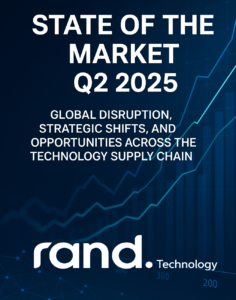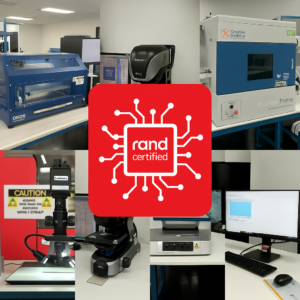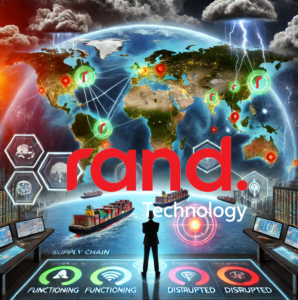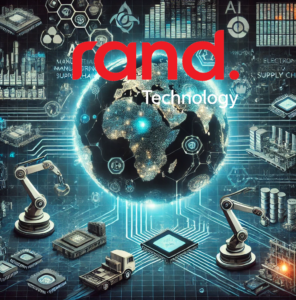The global supply chain landscape is constantly evolving. At Rand Technology, we understand the pressure to optimize efficiency, reduce costs, and remain agile in a competitive market. Artificial intelligence (AI) offers a powerful solution, promising significant improvements across all stages of the supply chain.
Unlocking Efficiency with AI
AI can revolutionize your supply chain by:
- Demand Forecasting and Inventory Management: AI-powered tools analyze vast amounts of data to predict future demand with exceptional accuracy. This empowers you to maintain optimal inventory levels, reducing stockouts and overstocking.
- Supply Chain Optimization and Planning: AI allows you to simulate various scenarios and identify the most efficient sourcing options, production schedules, and transportation routes. It can also assess potential risks from suppliers, geopolitical events, and natural disasters, enabling proactive mitigation strategies.
- Product Design and Development: AI algorithms can analyze customer preferences, market trends, and competitor products, accelerating the design process and ensuring your products meet market demands. Additionally, AI-based quality control systems can identify defects and guarantee product quality.
- Logistics and Fulfillment: AI optimizes delivery routes, reducing delivery times and costs. Warehouse automation powered by AI robots and systems streamlines picking, packing, and sorting, boosting efficiency and lowering labor costs.
- Customer Service and Experience: AI chatbots and virtual assistants personalize customer service, handle inquiries, process orders, and provide real-time shipment updates, improving customer satisfaction and reducing the workload on human agents. Predictive maintenance with AI minimizes downtime by identifying potential equipment failures, ensuring smooth operations.
Challenges to Consider
While AI offers significant benefits, there are challenges to address:
- Reconfiguring Global Supply Chains: Shifting production locations requires training new staff and adjusting logistics, impacting forecast accuracy. Counterfeit components pose a growing threat, demanding tighter controls and trusted suppliers.
- New Operating Conditions: AI systems might operate under different conditions than anticipated, requiring adjustments to ensure smooth operation.
- Supply and Demand Dynamics: While AI improves forecast accuracy, underlying lead times remain challenging. Managing these dynamics may require additional inventory or new methods.
- Data Privacy and Security: Extensive data sharing across platforms raises concerns. Robust data protection measures are crucial to prevent breaches and maintain trust.
- Integration and Interoperability: Integrating AI solutions with existing, often varied, technologies can be challenging. Ensuring seamless communication and interoperability is essential.
By embracing AI and addressing the challenges, you can transform your supply chain into a resilient, efficient, and market-responsive powerhouse. At Rand Technology, we partner with you to leverage AI and achieve a sustainable competitive edge. Let’s discuss how AI can unlock the full potential of your supply chain.


















